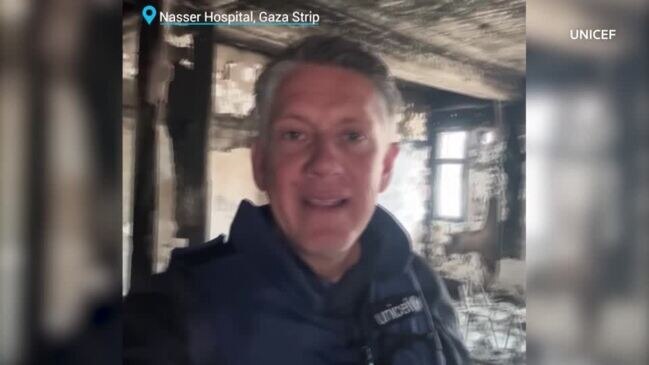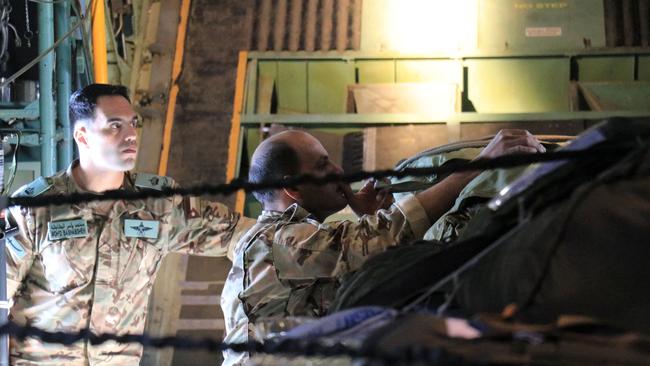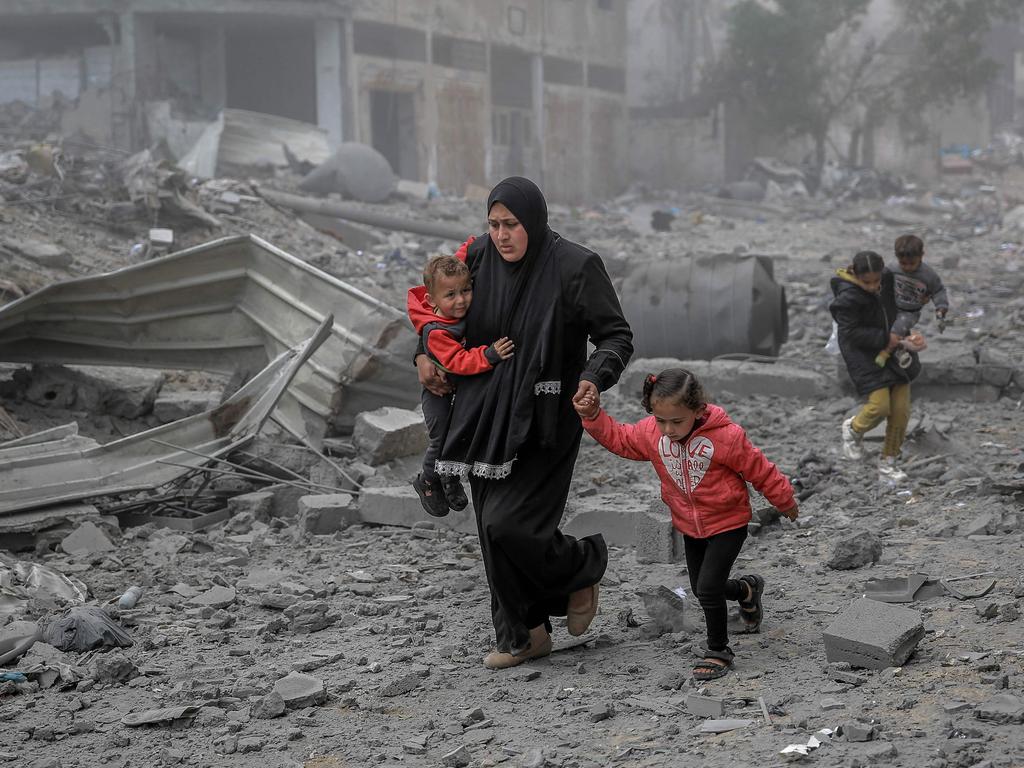Israelis craft plan to put Hamas rivals in charge of Gaza aid
The effort faces vehement opposition from Hamas while also dividing Israel’s leadership.

Israeli security officials are quietly developing a plan to distribute aid in the Gaza Strip that could eventually create a Palestinian-led governing authority there, Israeli and Arab officials said, causing a fierce backlash from Hamas and creating divisions in Israel’s war cabinet.
A top Israeli defence official has held talks with Egypt, the United Arab Emirates and Jordan to build regional support for an emerging effort to enlist Palestinian leaders and businessmen who have no links to Hamas – a US-designated terrorist organisation – in distributing aid, some of the officials said.
The aid would enter by land and sea after Israeli inspection and would head to large warehouses in central Gaza, where Palestinians would then distribute it. When the war is over, the people in charge of aid would assume authority to govern, backed up by security forces funded by wealthy Arab governments.
The effort represents some of the first steps Israel has begun taking to fill a power vacuum left by its invasion of the Gaza Strip following Hamas’s October 7 attack on Israel. The US and Arab governments have pressured Israel to do more to get humanitarian aid for Gazans and lay out a clear vision for post-war Gaza’s administration.
The aid effort has already hit obstacles and could fall apart. It so far doesn’t have the support of Benjamin Netanyahu, given that some of those involved would be affiliated with Fatah, a rival party to Hamas seen by the Israeli Prime Minister as supporting terrorism.
“Gaza will be run by those who do not seek to kill Israelis,” said a senior Israeli official from the Prime Minister’s office.
Another Israeli official said Hamas’s vehement opposition could make the plan unfeasible. But the chaos reigning across Gaza has frustrated the Biden administration, the Israeli defence establishment and critics inside Mr Netanyahu’s emergency government. They say that the organised distribution of aid is currently impossible and that Hamas can reassert itself within the governance vacuum. A force that can effectively distribute aid in Gaza is needed now, they say, and realistically that force would be connected to the Palestinian Authority, the West Bank-based government, or to Fatah, the authority’s ruling party.

Ghassan Alian, the head of the Israeli security arm overseeing civilian affairs in occupied territories, sees the aid effort as an important part of Israel’s plan to evacuate the city of Rafah, Hamas’s last stronghold, before an offensive on the border city. The aid-distribution network would feed 750,000 to a million people in displacement camps that Israel has planned for absorbing Rafah’s population, which has swelled as Gazans sought refuge there, the officials said.
One of the officials said Major Generl Alian’s vision is that anti-Hamas Palestinians would form “a local administrative authority” to distribute aid, cutting out the militant group from the process.
The effort has triggered retaliatory threats from Hamas. The group has labelled anyone who works with the Israelis as traitors and threatened them with death. Several Palestinian families once thought to be open to the idea have withdrawn in recent days.
“Accepting communication with the occupation forces by heads of families and tribes for work in the Gaza Strip is considered national betrayal, which we will not allow,” a Hamas security official said on March 10, shortly after Israel’s efforts began.
Hamas has played no formal role in distributing aid in Gaza but views the nascent Israeli plan as a way to create an independent governing structure.
“We will strike with an iron hand against anyone who tampers with the internal front in the Gaza Strip and will not permit the imposition of new rules,” the Hamas security official said.
Another Hamas official said the group already felt it was being sidelined by the sea bridge backed by the US, UAE and other partners to deliver aid to Gaza. The humanitarian corridor was negotiated directly with the municipality of Gaza City without the group being consulted, the official said. He said Hamas was also nervous about the involvement of Mohammed Dahlan, a former senior member of Fatah who was the head of security in Gaza for the Palestinian Authority before going into exile in the UAE.
More broadly, Hamas wants security to be handled by forces that would be apolitical but would operate with the militant group’s approval, Husam Badran, a member of Hamas’s political bureau, said. He said security in recent weeks has been handled by volunteers in the southern city of Rafah and in the north, with the group’s approval, to replace the Hamas-run police.
The Wall Street Journal




To join the conversation, please log in. Don't have an account? Register
Join the conversation, you are commenting as Logout